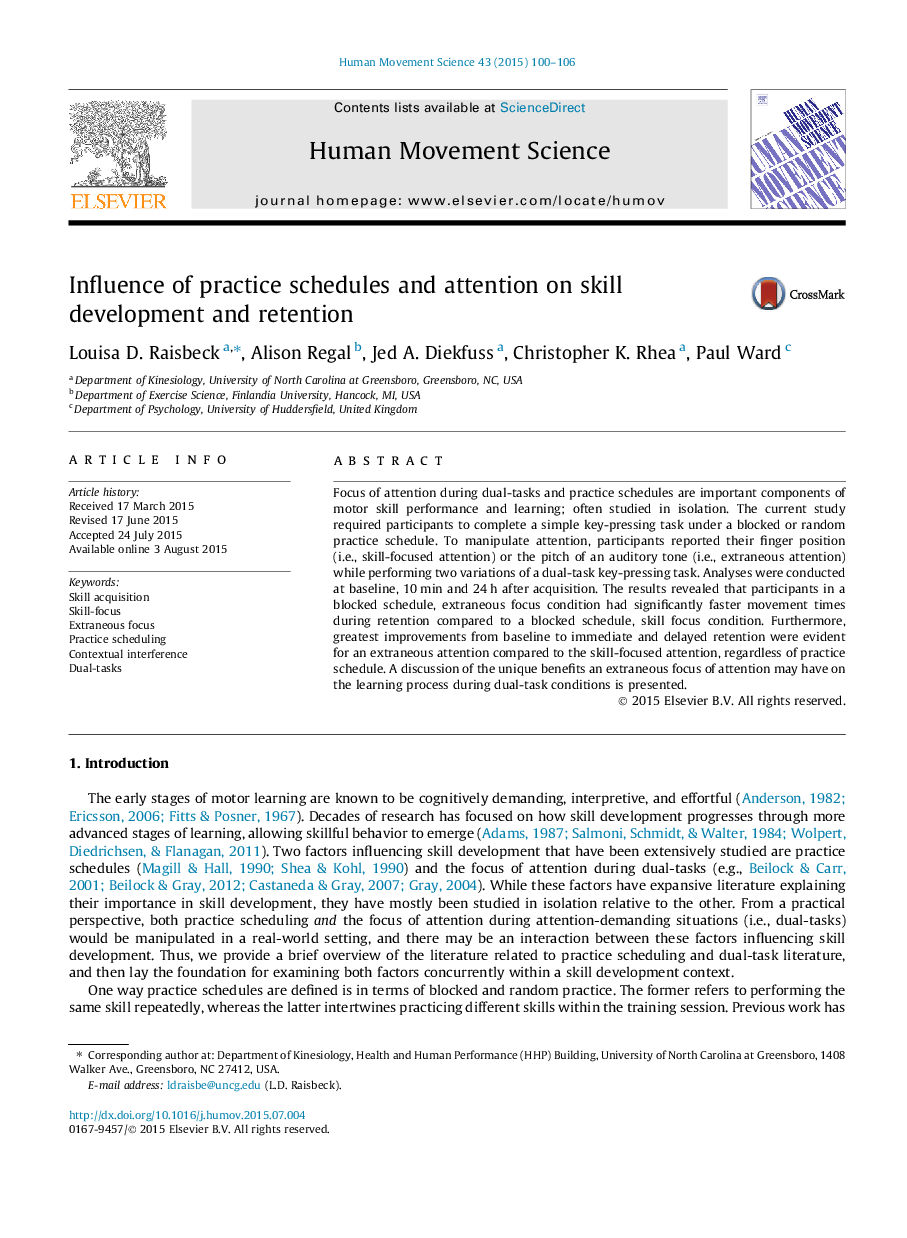| Article ID | Journal | Published Year | Pages | File Type |
|---|---|---|---|---|
| 928267 | Human Movement Science | 2015 | 7 Pages |
•We explore the interactive relationship between dual-task paradigms and practice schedules.•Assessed changes in performance using a novel key-pressing task.•Evidence provided that a blocked practice schedule with an extraneous focus of attention is superior to a blocked practice schedule with a skill-focused focus of attention.•Unique evidence that an extraneous focus of attention enhances learning (relative to baseline) regardless of practice schedule.
Focus of attention during dual-tasks and practice schedules are important components of motor skill performance and learning; often studied in isolation. The current study required participants to complete a simple key-pressing task under a blocked or random practice schedule. To manipulate attention, participants reported their finger position (i.e., skill-focused attention) or the pitch of an auditory tone (i.e., extraneous attention) while performing two variations of a dual-task key-pressing task. Analyses were conducted at baseline, 10 min and 24 h after acquisition. The results revealed that participants in a blocked schedule, extraneous focus condition had significantly faster movement times during retention compared to a blocked schedule, skill focus condition. Furthermore, greatest improvements from baseline to immediate and delayed retention were evident for an extraneous attention compared to the skill-focused attention, regardless of practice schedule. A discussion of the unique benefits an extraneous focus of attention may have on the learning process during dual-task conditions is presented.
